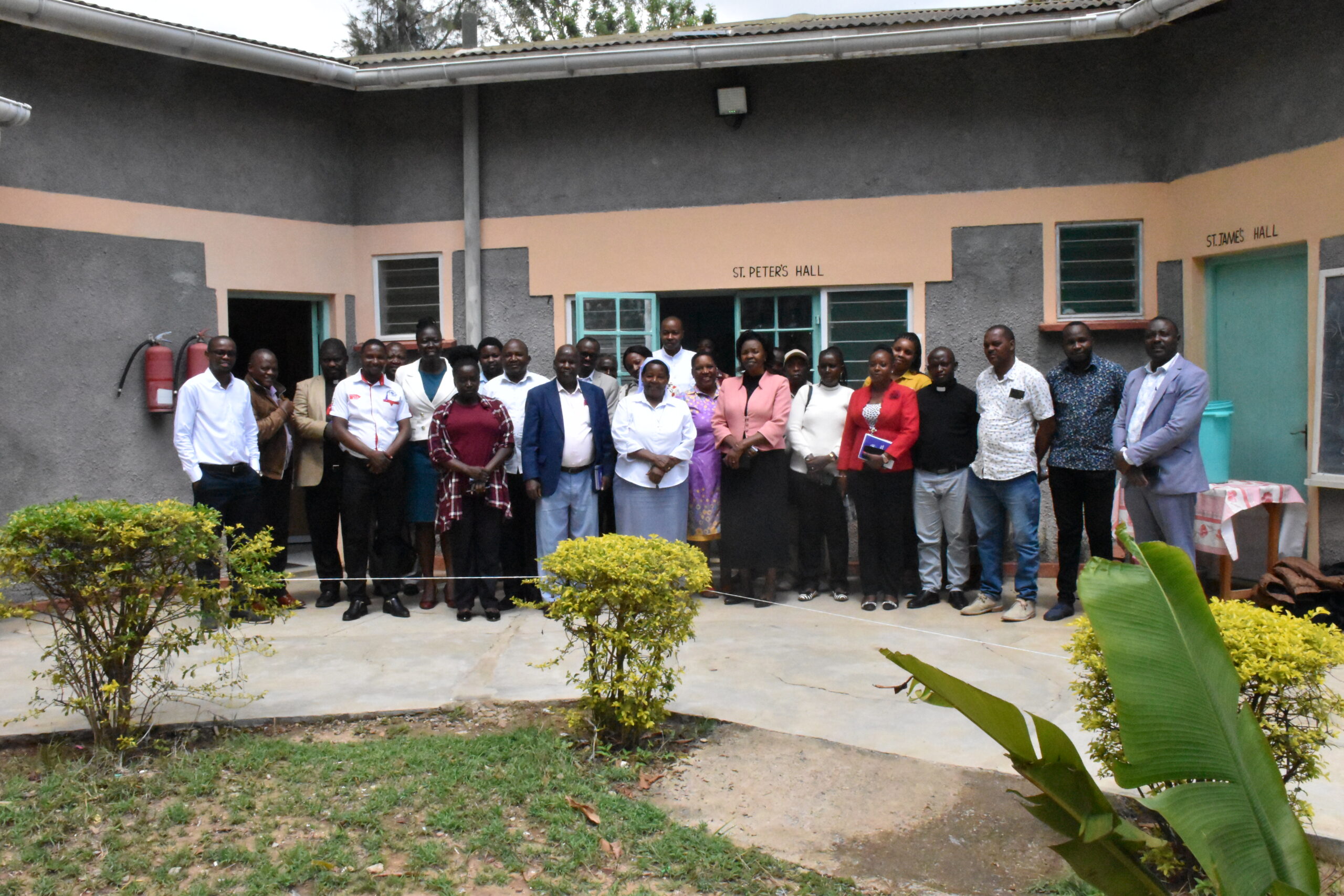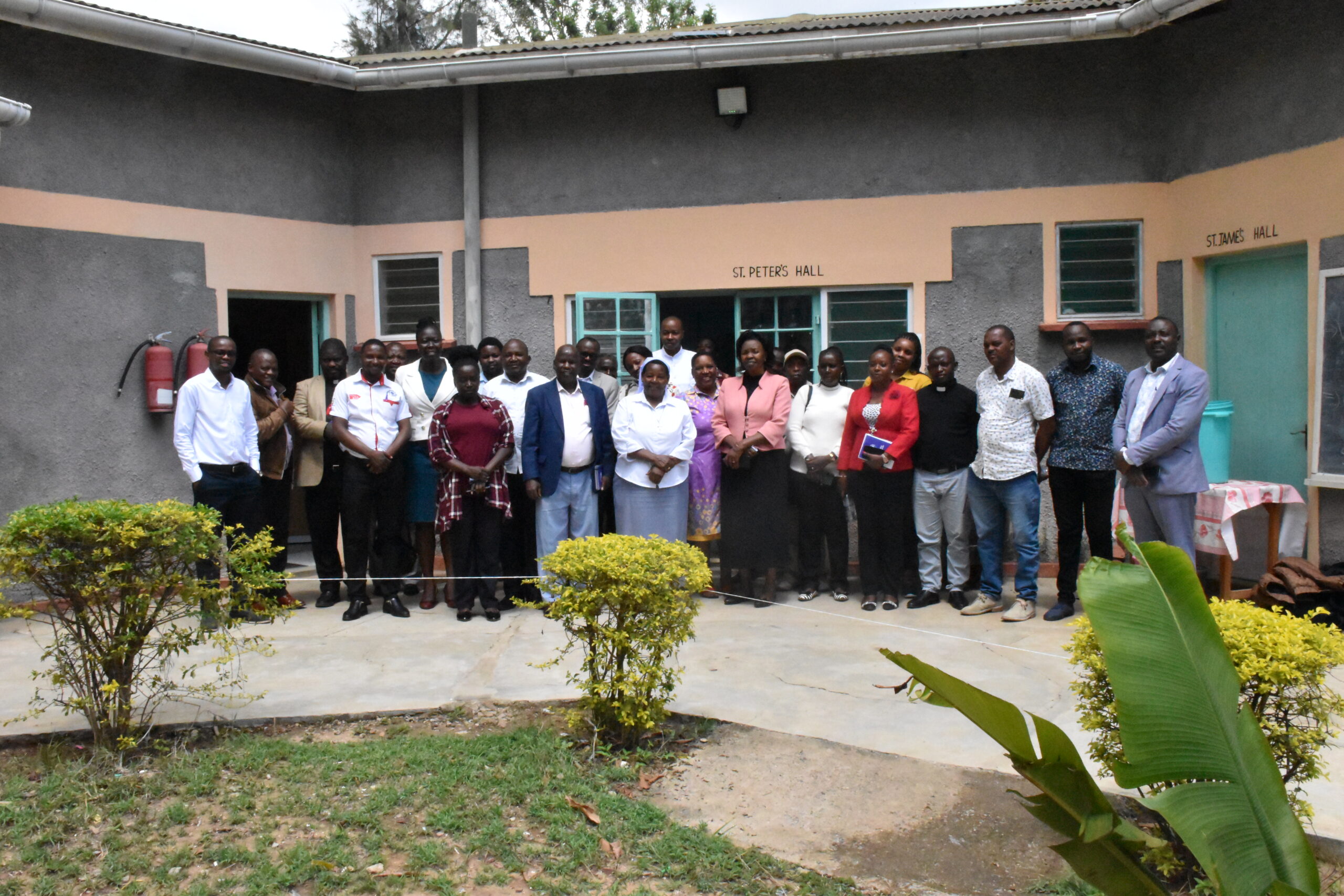By Boniface Mulu
Kitui, Kenya: The Kitui Catholic Diocese and the Anglican Development Services Eastern (ADSE) both undertook climate-related initiatives in Kitui County during 2023 and 2024. The initiative dubbed “The Climate Change We Must Project” focused on Kitui West and Matinyani Districts. At the same time, ADSE concentrated on building community capacity to access climate financing for local resilience projects.
Nicholas Mwandikwa, Project Officer for the Kitui Catholic Diocese, stated that the two initiatives aim to enhance the resilience of agro-pastoralist households in Kitui County. This will be achieved by improving food security, health, and income through climate adaptation strategies and sustainable value chains.
“Erratic rainfall patterns still remain a key factor affecting most livelihood sources” noted Nicholas.
Mwandikwa was speaking during the climate change workshop at the Kitui Catholic Diocese’s Pastoral Centre. The event, focused on building capacity among key stakeholders in Kitui County, was organized by Christian Aid-UK in collaboration with the Kitui Catholic Diocese and the Anglican Development Services Eastern.
“The reconstituted WCCPT need further training and linkages to relevant actors, informed decision making on cropping patterns due to the increased access to agro advisories, existing value chains with many opportunities with future improvements to financial literacy and digitalisation of financial records” Mwandikwa noted.
“The Building Community Resilience Against Climate Change Project is a build-up from the previous interventions, by the end of the two years, the smallholder- farmers and communities in the Kitui and Makueni Counties will have strengthened their capacity to effectively respond to the climate-related disasters, risks and opportunities” noted Kitui County’s acting Director of Environment, Climate Change and Forestry, Dominic Mutisya Mumbu,

This will enable them to anticipate, prepare for and adapt to changes, fostering resilient and sustainable livelihoods.
According to Mwandikwa, some 20 trainers of trainees were trained on poultry and indigenous livestock production. And some 1,380 meters of terraces were constructed for water conservation, adding that a total of 635 small-holder farmers were trained on nutrition and dietary diversity.
“Some 2.1 tonnes of the DTCs were issued. And some 1,400 tree seedlings were planted. And some three women-led groups were supported with 72 langstroth beehives. And some 72 self-help groups members were trained on village savings and loan association (VSLA) and digitalisation of financial records through the Jamii One API,” Mwandikwa added.
Noting that they held two radio talks reaching over 1.5 million people with climate forecasting services, early warning, bulletins and early action information.
“We trained a total of 62 computer information systems intermediaries to receive, interpret and disseminate climate information. And we also trained ten WCCPT on governance, management and resource mobilization for climate financing. These reached 4,240 community members,” the diocesan official said.
The Anglican Development Services Eastern Programmes Coordinator, Lydia Muithya, also spoke noting “We (the ADSE) have been receiving funds from our development partner. That is the Christian Aid,” she said. Muithya disclosed that they started the ADSE in 1989. “The Caritas Kitui joined us in 2016 and started working as separate partners,” she said.
The Caritas Kitui is the Kitui Catholic Diocese’s development arm. The ADSE has its headquarters at the Wamunyu market within the Mwala District, Machakos County. It operates in the Machakos, Kitui, Makueni and Garissa Counties. “We are working in those four counties,” Muithya said.
Noting that the NGO is implementing a climate change programmes pilot project in the Kitui County’s Ikutha, Mutitu, Kyuso, Kitui West, Kitui Rural and Tseikuru Districts. Kitui County has a total of 18 districts.
“Between 2013 and 2018 we had a climate change regulations programme, we the ADSE work very closely with all stakeholders including the ,” she said.
The chief guest, Dominic Mutisya Mumbu, in his speech noted the climate change realities that were hitting the County.
“This is the rainy season and when we talk of climate change, some of the main activities for us to do is tree planting,” Mumbu noted.














